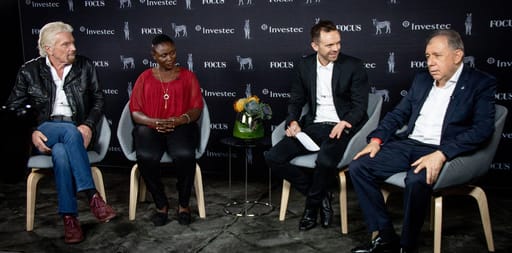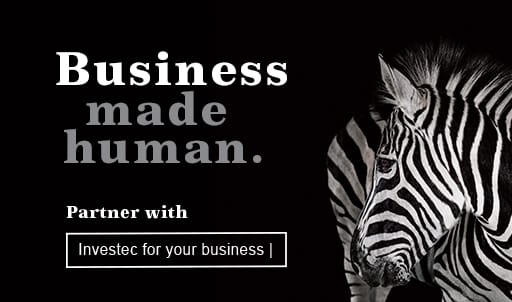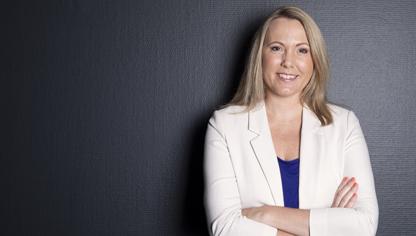MB: I want to chat to Khensani in a bit because she's the proof in the pudding of one of your candidates, but having Richard Branson, the face of entrepreneurship around the world, I’ve got to challenge you with something about entrepreneurship and that would be that we create such a big emphasis around creating more jobs, but shouldn't we maybe put that emphasis on creating entrepreneurs and showing people and training people how to create their own income?
SK: But, I think you know that's part of what we try and do in the Youth Employment Service, some of it is creating entrepreneurs, if Tashmia [Dr Tashmia Ismail-Saville] was here she'd give you a whole story about hydroponic farming and other aspects of what the Youth Employment Service actually achieves. We create these neighbourhood hubs within the townships and we're trying to take the place of work right into the heart of the township as opposed to out in the city.
So I think ultimately you have to create an environment that fosters and develops entrepreneurs and the Youth Employment Service does try and achieve part of that and it does give people the opportunity to go into their own business, I'll give you a good example of one of our interns that went to hotel school because that's what we do, we send them to hotel school or artisan school.
The intern actually went to do his work part of the programme, not the training part of the programme, at the Elangeni hotel. He started making cupcakes at night. Eventually he got so busy that he jumped off the bus and went into his own business and he now employees 12 of his own family members so by giving people a skill you can do phenomenal work to dent unemployment.
And because one skill does create multiple jobs and one of South Africa's big problems is there is a massive shortage of skills. In fact, we estimate 800,000 skills short and where we've been having difficulty is home affairs won't give visas, if the people aren't from South Africa, which is very wrong because those skills if they create an average of five jobs, OK maybe that's a bit high, but let's use that number, that's four million people that you're taking off the street. Four million people less that you need to give social grants too.
So we need to change a lot of our rules of the game in South Africa, which is stifling growth, stifling the creation of entrepreneurs and creating unemployment. And the President is on to it, but he needs to get his whole party along.
MB: So Richard, what's your take on that, jobs versus entrepreneurs, which one's should we focus on?
RB: They are both incredibly important. Obviously, I'm biased, being an entrepreneur. Last night we had a party for the whole team that is revamping the Branson Centre of Entrepreneurship here in South Africa. It's a great group of people. Virgin Active is very much behind it, and they think they can create 10,000 jobs over the next two or three years. A lot of the young entrepreneurs that they'd taken on board were there at the party.
I've also spent the last two or three days going to schools in the townships of South Africa and they're lacking, obviously - education is not as good as it should be. There are a lot of kids sitting on the floor, there were no chairs and so on.
But, you know if a kid does leave school at 15 or 16, as I did, they can become an entrepreneur. It may be more difficult for them to get other jobs and I suspect quite a lot of them are street savvy enough to become entrepreneurs.
It’s great to hear that this country is encouraging entrepreneurship. In Britain, we set up something called Virgin Start-up Loans where we have nearly 5,000 start-up companies and we arrange small loans for them, the government chip in and then we have mentors who work with them and the success rate of these 5,000 is far, far greater than if you don't help people.




